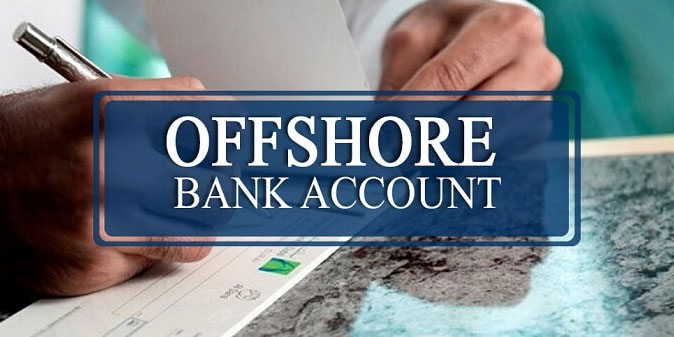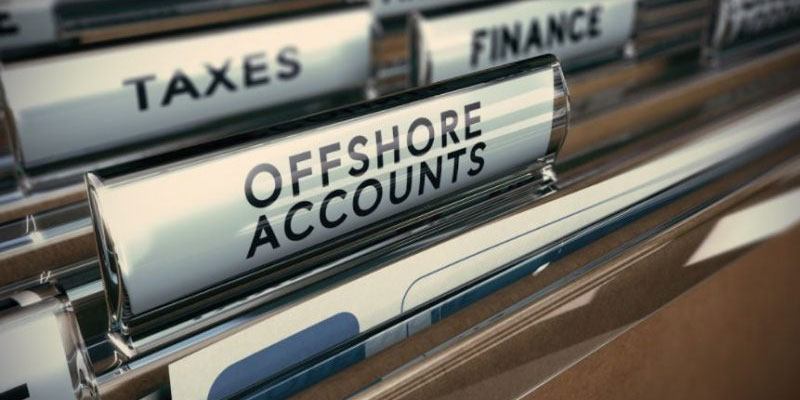How to Open an Offshore Bank Account and Use It
Triston Martin
Oct 07, 2023
Financial sophistication and shady practices are often associated with an offshore bank. While this may be the case, the truth is that anyone can open an offshore bank account in a matter of hours. You'll need to conduct some investigation to learn what applies to your case with an offshore bank or a foreign country. Here's a quick rundown of what to expect if you create an account with an offshore financial institution.

Offshore Banking - What Is It?
If you're doing your banking offshore, you're doing it in a place other than your home country. As a result, "offshore banking" is commonly used to denote foreign financial institutions, corporations, and investments. Switzerland, Bermuda, and the Cayman Islands are a few offshore banking havens. Mauritius, Dublin, and Belize are less prevalent nations where offshore banking is practiced.
Offshore banking is usually associated with being wealthy or only being done by a select few. Even though many rich individuals take advantage of these organizations, everyone can do so. If you're an American who has a bank account in Canada, you're banking outside of the United States.
Why Open an Offshore Account?

To do business or hold investments outside of one's native country or to have a bank account in a place where one spends considerable time; people turn to offshore banks for many valid reasons.
If you have many financial commitments in a foreign nation, an offshore account might make it easier for you to meet them. If you're a frequent sender or receiver of international money transfers, you'll find them to be an invaluable tool.
In most cases, ex-pats have bank accounts in the nation where they live and their home country. A bank account in another nation may be an option if you're looking for an effective approach to handle money while still saving and investing.
Here are a few of the most typical reasons why you might want to open a foreign bank account:
- You've already made a move to work or live overseas.
- You plan to work or retire outside of the country.
- You frequently travel for business or the needs of your employer
- You often travel to other nations for a job, pleasure, or to see family members.
- You're a foreign-currency-paid freelancer or entrepreneur.
An Overview of the Essentials
An offshore bank account is much like opening a bank account in your own country. Offshore banks all request personal information such as your name, date of birth, residence, nationality, and job title.
You will need to submit a copy of your passport, driver's license or other government-issued ID to verify your personal information. Banks need to know where you live since it might affect your taxes. Utility bills or similar documents can be used to meet this criterion.
Banks will need to verify its authenticity no matter what kind of paper you offer. In rare circumstances, a notarized copy of a document may be sufficient. Other offshore centers prefer the apostle's stamp—a specific certification mark used internationally. If this is the case, you must visit the government agency authorized to issue this stamp for your state or country.
Opening an Offshore Bank Account
The procedure of opening an offshore bank account isn't difficult. It's a lot like opening an account at a local bank in the US in that the financial institution will require a lot of the same information, like:
- Your name
- Verification of residency
- Birthdate
- Citizenship
- Occupation
For this reason, they'll ask for a government-issued ID (passport or driver's license), as well as a utility bill or anything of the. You may also be required to provide supplementary financial statements dating back six to 12 months for certain lenders. They'll look at your transactions and check whether you've had a solid history with your bank in the statements. The bank may also question what you intend to do with the account.
How Much Does an Offshore Bank Account Cost?
In general, a few hundred dollars in US currency and the supporting papers outlined in the preceding section are required by most banks. You should establish an account in a few days to fulfill those prerequisites. You may wonder, though, "How can offshore banks generate money then?" at the cost of only $200 to $300. I think you have a good point.
Most offshore banks profit from foreign transaction fees when you deposit big sums of money. Aside from traditional banking services, these financial institutions often provide a wide range of other financial services such as in-house investing and wealth management.
• Currencies
While opening an offshore bank account, you can select the currency you want to keep your money in many cases. Holding funds in many currencies has its drawbacks as well.
Foreign tax responsibilities may arise, for example, when you earn interest on a deposit in a foreign currency. You may also be subject to exchange rate fees if you often deposit and withdraw money in other currencies.
Remember that this is how many offshore banks make their money, so be careful to thoroughly examine any possible offshore bank's pricing structure and upcharges.
• Making deposits
Most offshore bank accounts are financed via wire transfer because most people don't travel to the Caribbean with large sums of money.
You can send money for free by ACH or domestic wire transfer in the US, but this option is often not accessible when sending money to an account overseas.
Despite the ease of making the transfer, account customers are typically hit with international wire transfer costs when sending and receiving money.
• Getting cash out of an account
While there are limited options for putting money, there are many options for withdrawing money. Customers like the variety of options offered by offshore banks when withdrawing their money.
International debit cards from most offshore banks let you access your money from any country. You'll also want to look at the costs associated with using the card since they may rapidly pile up. Withdrawing large quantities of money at once from an ATM will save you money.
An offshore bank may be able to issue you checks, but it's generally not recommended because the checks may not be accepted in your home country.







